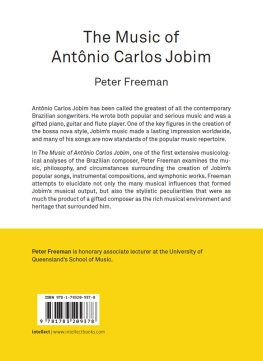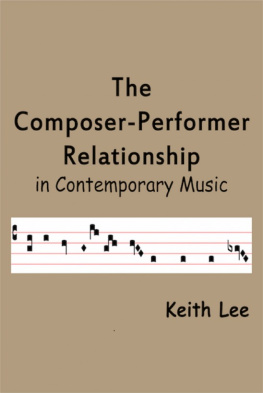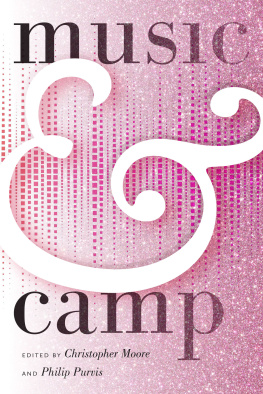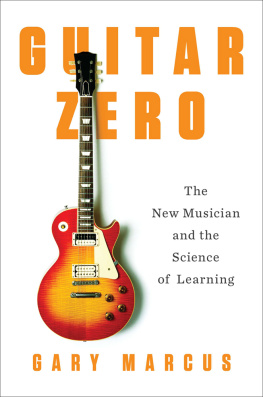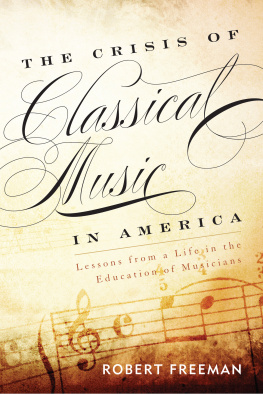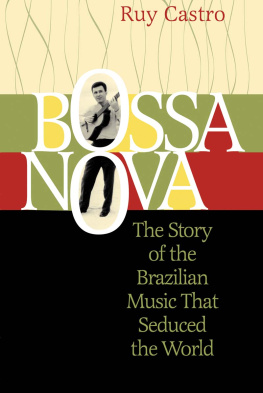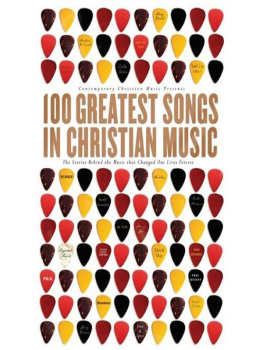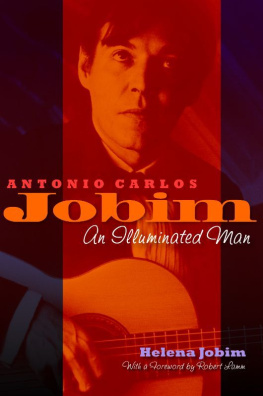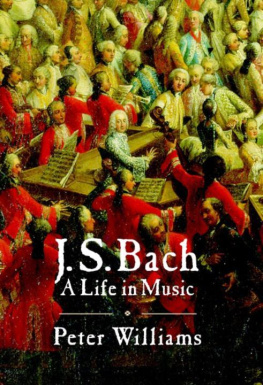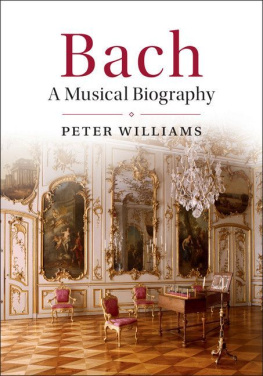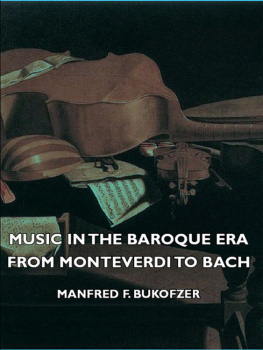Contents
Figures


First published in the UK in 2019 by
Intellect, The Mill, Parnall Road, Fishponds, Bristol, BS16 3JG, UK
First published in the USA in 2019 by
Intellect, The University of Chicago Press, 1427 E. 60th Street,
Chicago, IL 60637, USA
Copyright 2019 Intellect Ltd.
All rights reserved. No part of this publication may be reproduced, stored in a retrieval system, or transmitted, in any form or by any means, electronic, mechanical, photocopying, recording, or otherwise, without written permission.
A catalogue record for this book is available from the British Library.
guas de maro and Saudade do Brasil by Antnio Carlos Jobim
Reproduced by kind permission of Corcovado Music Corporation
Administered by Fairwood Music (UK) Ltd for the UK & Eire
1972 and 1976 Corcovado Music Corporation.
Copy-editor: MPS Technologies
Cover designer: Alex Szumlas
Production manager: Tim Mitchell
Typesetting: Contentra Technologies
Print ISBN: 978-1-78320-937-8
ePDF ISBN: 978-1-78320-939-2
ePUB ISBN: 978-1-78320-938-5
Printed and bound by Hobbs the Printers Ltd, UK.
This is a peer-reviewed publication.
I wish to acknowledge my appreciation of the meticulous critical feedback and support that my colleagues Dr Simon Perry and Professor Philip Braanin provided during the course of my studies on stylistic diversity in the music of Antnio Carlos Jobim. I am also very grateful to Luiz Roberto Oliveira who sent me the Tom Jobim Songbooks, the CD Urubu and much encouragement and information from Brazil. Luizs launch of the outstanding Clube do Tom website coincided with the start of my research, and I am indebted to him for the many valuable research paths that I explored that were revealed by his comments to me and his web postings. The support and help of my colleague, Nathan Warfe has also been entirely welcome. Nathans interest, knowledge and enthusiasm for Brazilian music and the Portuguese language has been infinitely reassuring.
In Rio de Janeiro in February 2015 Paulo Jobim (Antnio Carlos Jobims son) was very accommodating and encouraging towards my publishing endeavours. I remember with fondness our walk in the Jardim Botanico and his kind guidance particularly in relation to the musical presentations in this book. Antnio Carlos Jobims grandson, Daniel Jobim, has also been very supportive and constructive, a wonderful source of information and recollections of life with his grandfather. Daniels international performances and upholding of the bossa nova tradition are uncannily reflective of the original gift of music handed down to him. In Ipanema, Carlos Alberto Afonso at the centre for bossa nova, Toca de Vinicius, has also been a fount of knowledge and encouragement. I owe Carlos so much for his enthusiasm and dedication in promoting Antnio Carlos Jobims music. He is a treasure.
My musician friends among the Brazilian community in Brisbane, interstate and overseas particularly Mauricio Hosi, Eddie Gazani, Mike Bevan, Heloise McMillan, Doug de Vries, Yamandu Costa, Anna Paes, Adriano Giffoni and Andr Gonalves have been very encouraging, as has Eliane Costa in editing my Portuguese. My companheira de viagem, Kay Sullivan, who accompanied me to Brazil in 2013 and 2015, has been an enchanted godsend. Her embracement of Brazilian music has been a most welcome tonic and a catalyst to not only further musicological exploration but also to the discoveries and joys of playing together.
Finally, and most importantly, my wife Julie provided exceptional strength in her support of my undertaking of this book. Living with my pre-occupation for such an extended time required her to make considerable sacrifices, which she accepted without complaint. Instead her positive suggestions, encouragement and wise counsel often helped to overcome some of the more awkward aspects of my writing and helped me to look at things more objectively. Her dedication to my endeavours reached even to the extent of her learning introductory Portuguese. This in turn gave me the confidence and support to undertake what initially seemed like a formidable research task that of persisting with the interpretation of many Portuguese sources. I now know it was worth the effort. Her passing in 2012 makes her support of my work even more poignant and meaningful.
Antnio Carlos Jobim has been called the greatest of all the contemporary Brazilian songwriters. He wrote both popular and serious music and was a gifted piano, guitar and flute player. His songs have made a lasting impression worldwide to the extent that many are now standards of the popular music repertoire. Jobim was also attracted to languages not only did he write the lyrics to many of his songs in his native Brazilian/Portuguese, but he showed a command and love of English, particularly its musical Anglo-Saxon sounds.
Jobims profound melodic and lyrical sensibility was enhanced and complemented by his inventive and peculiar harmonic idiom. This idiom, not the norm in either popular music or jazz, is characterized by dissonant and highly coloured chords that sound entirely natural and fit effortlessly into a personalized musical context.
Tom Jobim, as he was called by his friends, was trained in classical music and was well acquainted with the works of Bach, Beethoven, Chopin, Debussy, Ravel, Stravinsky and the techniques of the twentieth-century serialist composers. His most important musical influence, however, was Heitor Villa-Lobos, whose works combined influences from classical, native Indian, folk and popular Brazilian styles. In the early 1960s, Jobim became the most important identity in the creation of the new, internationally recognized, popular music style called bossa nova. As well as this, Jobims musical works reveal a wide range of stylistic influences: from classical piano and French impressionism, samba rhythms from Rio de Janeiro and Bahia, American Tin Pan Alley songs, to popular Brazilian music composers such as Pixinguinha, Ary Barroso and Dorival Caymmi.
His success as a popular music composer is so well recognized that many of his songs form the heart of the Latin jazz music repertoire and have been recorded by such celebrities as Frank Sinatra, Miles Davis, Ella Fitzgerald, Stan Getz, Sarah Vaughan, Sting and Diana Krall. Jobim also composed larger-scale orchestral works such as Sinfonia do Rio de Janeiro (1954), and Brasilia: Sinfonia da Alvorada (1960), as well as film scores and other orchestral pieces, such as the tone poem Saudade do Brasil (1975).
This book examines a selection of Jobims most important songs and instrumental pieces and attempts to elucidate not only the many musical influences that formed his musical output, but also the stylistic peculiarities that were as much the product of a gifted composer as of the rich musical environment and heritage that were so much a part of his life.
Chapter 1: Introduction
Chapter 2: Influences
Chapter 3: Harmonic Language
Chapter 4: Rhythmic Techniques
Chapter 5: Thematicism and Structural Design
Antnio Carlos Jobim came to prominence at a pivotal point in Brazilian cultural history. In 1959, Heitor Villa-Lobos, Brazils most internationally recognized composer, died, bringing to an end a significant era of Brazilian nationalism in art music. Three years earlier, the reformist Kubitschek government had come to power with its optimistic mandate of 50 years in 5, promising rapid industrial expansion and capitalist modernization. A new capital, Braslia, was planned, international companies invested heavily in the countrys infrastructure and the results were soon seen in full employment, political support for the arts, architecture, interior and fashion design, technology and the media. Under Kubitscheks leadership there was a national sense of well-being and positive self-assertion. It was in this confident social environment that bossa nova developed as a new musical expression of Brazilian identity.

